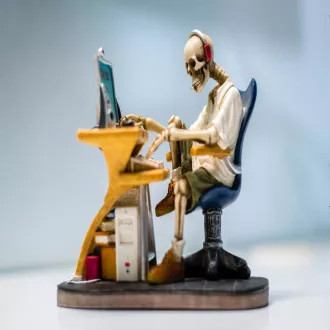Transcription The Role of Personality in Conflict
Each individual's personality plays a key role in how they perceive and react to conflict.
Often, differences in character, values and previous experiences can generate friction and misunderstanding, even in the absence of substantial disagreement.
Conflict can arise because we misinterpret the behavior of others through the prism of our own personalities.
A key factor is that we naturally tend to feel more comfortable with and trust people who are similar to us.
This means that, unconsciously, we find it more difficult to trust and get along with those who have a different behavioral style.
This initial distrust can fuel conflict, especially when another person's decisions or actions clash with what we consider right based on our own personality.
Therefore, understanding and respecting these differences is crucial to avoid unnecessary confrontations and address problems empathetically and effectively.
Personality types and their frictions
Personalities often occur in opposing pairs, which can cause common friction in the work environment.
Examples of these dualities include.
Introverts vs Extroverts: Introverts may perceive extroverts as overly dominant or loud, while extroverts may view introverts as reticent or disinterested.
Intuitive vs detail-oriented types: More artistic and abstract people may clash with those who focus on data and logical rigor.
Emotional vs rational: Those who make decisions based on their feelings may have difficulty understanding those who are guided by rational, analytical thinking.
Spontaneous vs. organized: People who prefer spontaneity may conflict with those who value planning and following processes.
Conscientious vs. relaxed: Those who act with diligence and punctuality may feel frustrated with those who procrastinate.
The key to mitigating these conflicts is not in eliminating one personality type, but in recognizing and understanding that the other person's behavior is not based on malicious intent, but on their natural way of being.
By ceasing to interpret the behavior of others through our own filter, we can open the door to a more empathetic and productive dialogue.
The goal is to stop assuming that everyone must behave as we do and instead learn to communicate in a way that accommodates their individual styles.
Summary
Personality plays a key role in how we perceive and react to conflict. Unconsciously, we find it more difficult to trust people with behavioral styles different from our own, which can lead to friction.
Differences between personality types, such as introverted vs. extroverted or emotional vs. rational, often cause friction in the work environment. These clashes arise from interpreting others with our own filters.
The key is to understand that the other person's behavior is not malicious, but based on their natural way of being. This allows for a more empathetic dialogue tailored to their individual styles.
the role of personality in conflict




